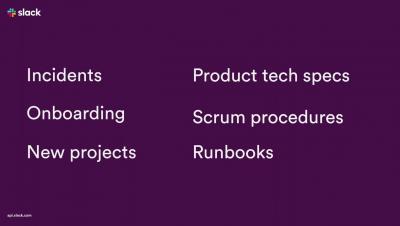Teams | Collaboration | Customer Service | Project Management
API
Introducing the Bookmarks API | Slack Platform | Slack
Interoperability: Open APIs are a start, Open Standard is better
The EU’s next discussion on the Digital Markets Act (DMA) will take place soon and interoperability for online communications (messaging apps, collaboration tools and social media platforms) will be at the heart of it. Interoperability was one of the key features of the DMA when it was first advertised, as it’s completely aligned with the fundamental goals of the act.
3 Types of User Communication APIs and When to Use Them
As modern applications have become increasingly feature-rich and performant, user expectations are at an all-time high. Failure to communicate key information or displaying out-of-date information frustrates users and causes a loss of trust. Think about the last time you ordered something online: if you didn’t receive your order confirmation within seconds, you probably began to worry that something went wrong. Users require product transparency for consistent use.
Use the Events API to create a dynamic App Home | Tasks App | Slack Platform
How To Get A Slack Discovery API Token | Discovery API Docs | Slack
Introduction to Courier: Send API, Automations, and Recipient Lists
APIs Are The Prefabrication Of Software
Whether it’s for building a company, monitoring the news, or even making a grocery list, software penetrates every part of the modern western lifestyle. The demand for software far exceeds what developers (and the tech industry as a whole) are capable of supplying from scratch. In order to keep pace with demand, our industry has been increasingly shifting towards a ‘prefabrication’ model of software development via the utilization of third party APIs.











